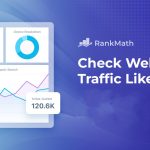In today’s digitized world, having a website is akin to having a storefront in a bustling marketplace. But having a storefront isn’t enough. You need passersby to notice you, to walk in, browse, and hopefully make a purchase. In the digital realm, Google indexing serves as the loudspeaker that announces your presence to potential online visitors. Here’s a deep dive into what Google indexing means, its immense significance, and how you can ensure your website doesn’t go unnoticed.
What is Google Indexing?
At its core, Google indexing is a process. Imagine a vast library, not of books, but of web pages. Google’s index is akin to the catalog system of that library, recording every web page it discovers. When a search query is entered, Google looks into this massive index to retrieve the most relevant results.
However, not every page gets the privilege of being in this catalog. Google’s URL scanner and indexing tools play a discerning librarian, deciding which pages are of enough value and relevance to be included.
The Crucial Role of Indexing in SEO and Visibility
Imagine pouring hours into crafting content, designing a user-friendly interface, and optimizing load times only to find that your website gets a trickle of visitors. The problem? It might not be indexed.
Search Engine Optimization (SEO) isn’t just about keywords and backlinks; it’s about ensuring that your website can be discovered in the first place. Google’s indexing is that initial gateway. If your site isn’t indexed, it’s virtually invisible to searchers, no matter how top-notch your content might be.
The Intricacies of Google Indexing
If you’ve ever wondered, “How often does Google index websites?”, you’re not alone. The frequency varies, influenced by factors such as website quality, content updates, and the site’s overall reputation. Google might check a highly authoritative news site several times a day, while a seldom-updated personal blog might be scanned less frequently.
Moreover, Google doesn’t just blindly index. Issues, such as duplicate content, poor quality, or potential malware, might cause your page to be skipped over. This underscores the importance of not just creating a website but ensuring it meets quality standards.
Is Your Website in the Catalog?
The first step towards online visibility is confirming your website’s indexed status. Tools like Google’s site checker or the index checker come in handy. For a quick test, you can type “site:yourwebsite.com” into Google. If your site shows up, you’re in the index.
However, it’s essential to differentiate between ‘site indexed’ and ‘page indexed’. While your main website might be indexed, every page might not be. Regular checks can ensure that your most valuable content isn’t lost in the void.
Earning Your Place in the Catalog
Getting your website indexed isn’t about luck; it’s a systematic process. Here’s a simplified roadmap:
Website Creation:
Ensure it’s user-friendly, mobile-optimized, and has valuable content.
Sitemap Submission:
A sitemap guides search engines, showing them the structure of your site. Submitting it via Google Webmaster Tools can expedite the indexing process.
Quality Backlinks:
Having reputable websites link to yours can alert search engines to your site’s value, increasing the chances of faster indexing.
Regular Updates:
Regularly updated content can attract search engine crawlers more frequently.
Tools to Aid Your Indexing Journey
A slew of tools can help you navigate the indexing terrain. The Google page index checker, bulk index checker, and various SEO index checker tools can provide insights into your site’s indexed status. If you’re an enterprise or manage multiple sites, bulk rank checker tools can be invaluable, allowing you to monitor multiple domains simultaneously.
Navigating Indexing Hurdles
If your website isn’t being indexed, don’t despair. Google offers tools to help diagnose and resolve these issues. The most common problems often revolve around the website’s robots.txt file blocking search engines, penalties for violating Google’s guidelines, or technical problems like slow load times.
Conclusion
In the vast digital marketplace, Google indexing ensures your website isn’t just another forgotten stall in a back alley. It’s your ticket to visibility, relevance, and ultimately, digital success. By understanding and harnessing the power of indexing, you not only make your website accessible but ensure it stands tall among a sea of competitors.
With the right tools, insights, and proactive measures, you can ensure that your website isn’t just another drop in the digital ocean but a beacon for those seeking what you offer. Remember, in the world of the internet, visibility is the first step to success.






